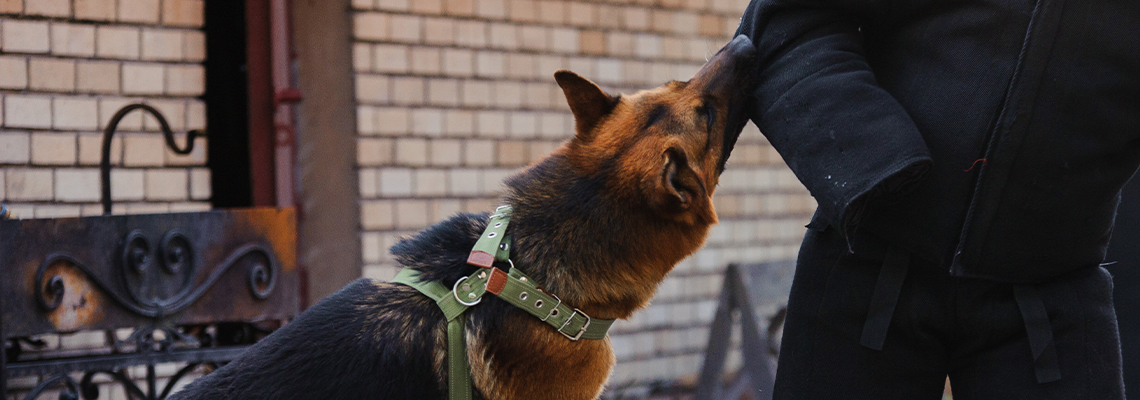Wisconsin Dog Bite Law: Understanding Your Rights and Responsibilities

Dog bites are a common concern for pet owners and the public alike. While dogs are often beloved members of families, incidents involving dog bites can result in serious injury. If you or someone you know has been bitten by a dog in Wisconsin, it’s important to understand the state's dog bite laws and the legal recourse available to victims.
Wisconsin's Dog Bite Law: Strict Liability
Unlike many states that follow a "one-bite rule," where a dog owner is only liable for injuries caused by a dog if the dog has previously shown dangerous behavior, Wisconsin operates under a "strict liability" rule for dog bites. This means that a dog owner can be held responsible for injuries caused by their dog, regardless of whether the dog has previously shown aggressive behavior or bitten someone before.
Under Wisconsin law (Wis. Stat. § 174.02), a dog owner is legally responsible for injuries caused by their dog if the victim was lawfully on the premises (such as being on the sidewalk or a neighbor’s yard) and the dog attacks or bites them. The owner cannot avoid liability by claiming they didn’t know their dog was dangerous or had a history of biting.
Key Elements of Dog Bite Claims in Wisconsin
To successfully pursue a dog bite claim in Wisconsin, the victim must prove the following elements:
The Attack Occurred in a Lawful Setting: The person bitten must have been on the property legally. If a trespasser is bitten, the owner may have a defense in some cases.
The Dog's Behavior Was the Direct Cause of Injury: The injury must have been directly caused by the dog’s behavior. For example, if a person falls after being frightened by a dog but is not actually bitten, the owner may not be held liable under the strict liability law.
The Dog Bit or Attacked the Victim: The law specifically addresses dog bites and injuries resulting from bites. While other injuries caused by dogs (such as scratches or knocks) might be considered, dog bite laws mainly cover the injuries resulting directly from a bite.
Defenses Dog Owners Can Use
Although Wisconsin follows strict liability for dog bites, dog owners can still raise certain defenses to mitigate or avoid liability. Some common defenses include:
Provocation: If the victim provoked the dog, such as by teasing or physically harming the dog, the owner may not be held liable. However, the provocation defense must be supported by evidence that the victim’s actions directly led to the bite.
Trespassing: If the victim was trespassing on the owner’s property when bitten, the dog owner may not be liable. Wisconsin law does not require owners to keep their dogs from attacking trespassers.
Contributory Negligence: In some cases, if the victim was engaging in dangerous or reckless behavior that contributed to the injury, it could reduce the damages or prevent recovery entirely.
What to Do After a Dog Bite in Wisconsin
If you’ve been bitten by a dog in Wisconsin, taking the following steps is crucial:
Seek Medical Attention: Even minor bites can lead to infections or more serious health issues. Immediate medical care is important.
Report the Incident: Notify local authorities or animal control. The dog may need to be quarantined to ensure it doesn’t have rabies or another disease.
Gather Evidence: Take photos of the injury and the location where the bite occurred. If possible, get contact information from any witnesses who saw the attack.
Consult an Attorney: An attorney can help you navigate the legal process, determine the value of your claim, and pursue compensation for medical bills, pain and suffering, lost wages, and other damages.
Compensation for Dog Bite Victims in Wisconsin
In Wisconsin, victims of dog bites may be entitled to compensation for various damages. This can include medical costs, pain and suffering, lost wages, and emotional distress. In some cases, victims may also be awarded punitive damages if the dog owner’s behavior was particularly reckless or malicious.
Conclusion
Wisconsin's strict liability dog bite law makes it easier for victims to seek compensation for injuries caused by a dog bite. However, dog owners are still allowed to raise defenses in certain cases. If you’ve been bitten, it’s essential to seek medical care, report the incident, and consider legal advice to ensure your rights are protected and you receive appropriate compensation for your injuries.
If you, or someone you know, has been wrongfully injured, contact Buss Law, LLC today for a FREE consultation!
INJURED? “DON’T FUSS, CALL BUSS!” CALL (414) 246-1000 TODAY!